Spice Worlds
In which Norm revisits the desert planet Arrakis in Warner's new release of Denis Villeneuve's DUNE: PART TWO and Via Vision's boxed set of David Lynch's 1984 adaptation.
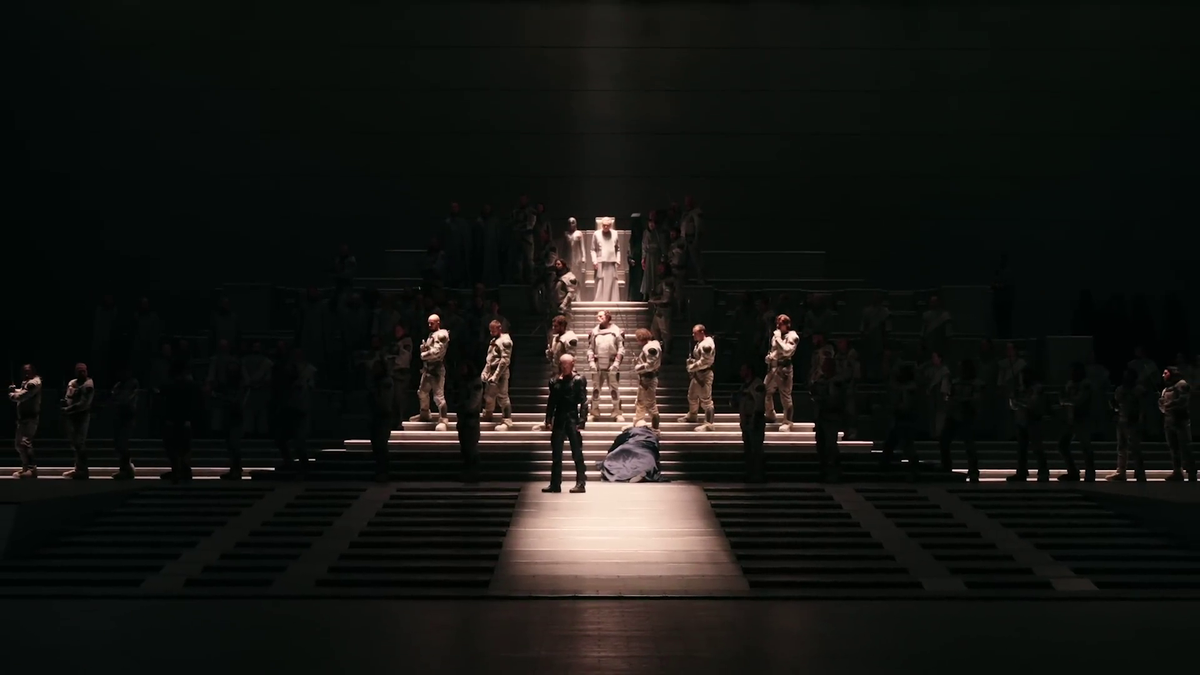
I admit it: I did not care for Dune: Part One. As I wrote in my NOW review, I found the first hour or so pretty enjoyable, with Denis Villeneuve bringing Frank Herbert’s sprawling SF epic back to the big screen in all its complexity.
I appreciated the conscious casting of actors of color as the indigenous Fremen to put Herbert’s white-savior metaphor front and center, letting Villeneuve draw structural parallels with my beloved Lawrence of Arabia to let us know things will not go well for Timothée Chalamet’s Paul on his messianic path. (We discussed the Lawrence thing here, that was fun.)
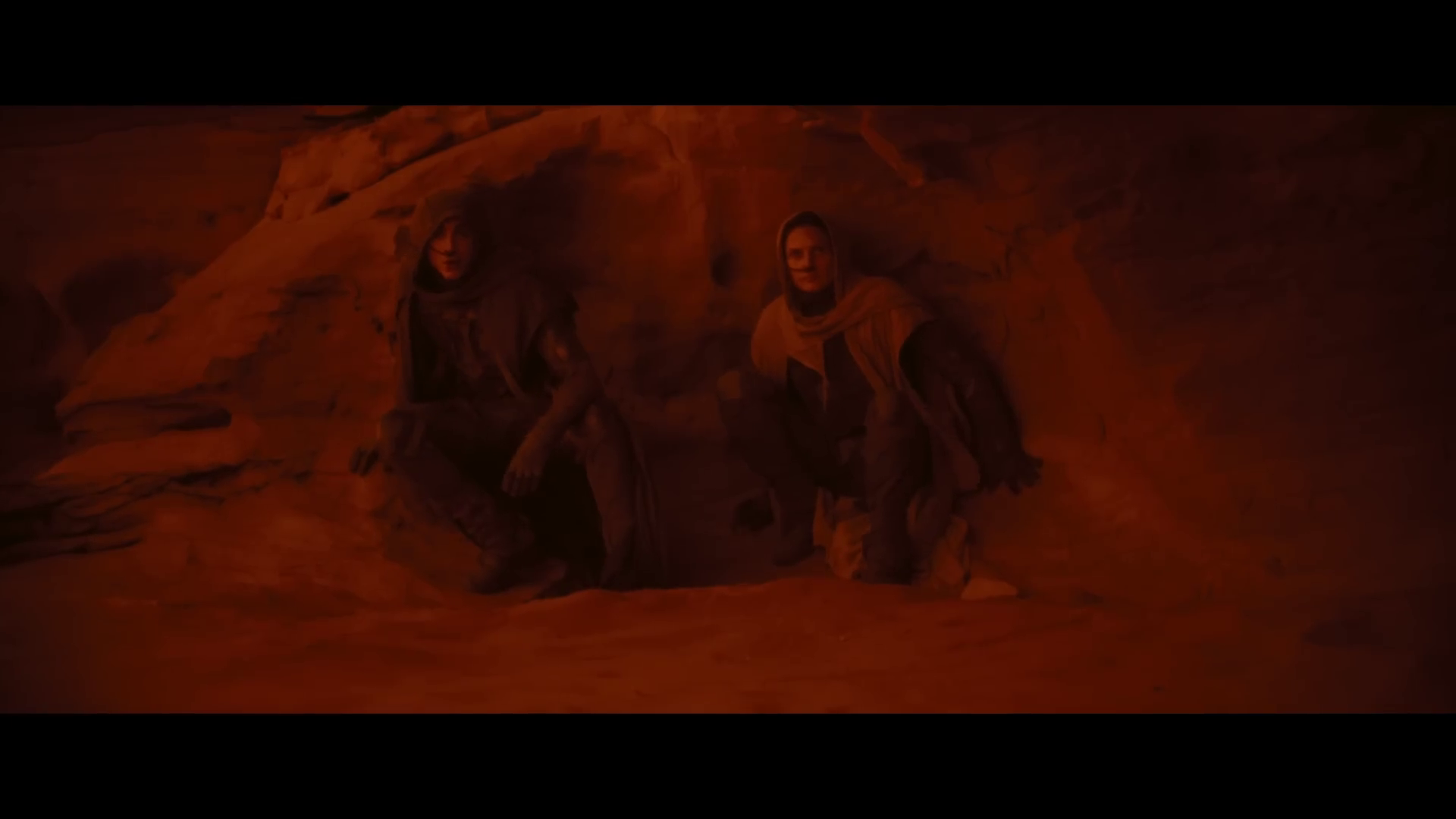
But after the Harkonnen attack on the Atreides compound about two-thirds of the way in, the film effectively stranded us in the desert with Paul and his mother, Lady Jessica (Rebecca Ferguson), as they search for sanctuary in the desert after escaping the death squads. Because Villeneuve and his co-writers decided to end the first movie with them being taken in by the Fremen – but because any Dune movie has to be two and a half hours long, apparently – the film wound up spinning its wheels for what felt like forever, ultimately ending on the IOU of Dune: Part Two. And that was really frustrating.
So I wasn’t exactly in a hurry to see Dune: Part Two, even after all my colleagues started ribbing me about how Villeneuve paid off that IOU in full. (Well, there’s also all the other stuff going on that’s made it hard to sneak away and spend three hours in a movie theater.) But then the disc showed up, and I put it in, and … yeah, it’s great.
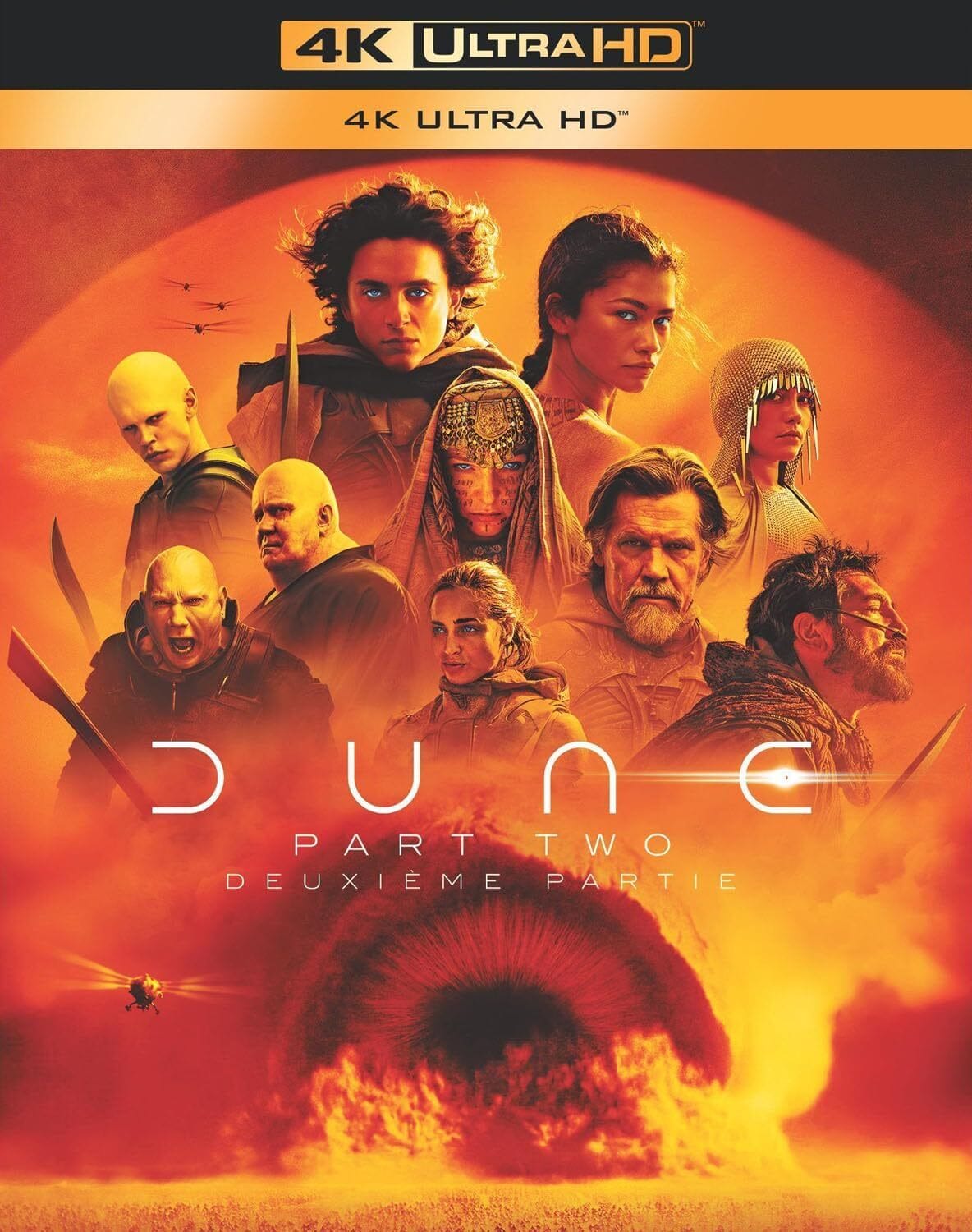
Dune: Part Two grabbed me right from the start, with Paul and Jessica uneasily accompanying the Fremen on a mission to sabotage the Harkonnen occupation of Arrakis – and yes, that’s exactly the same way we’re reintroduced to Lawrence in the second act of Lean’s masterpiece, further confirming Villeneuve’s decision to rework David Lean as much as Frank Herbert. For what is Dune but the story of a colonizer who decides to throw his lot in with the resistance, only to end up leading them into further misery?
That tragedy looms much more heavily in Part Two than it did in the first film, which had more than its share of Fremen prophecies and Bene Gesserit mysticism but couldn’t hook it to anything concrete, since none of the events had actually happened yet and Paul could laugh off all the Chosen One stuff as meaningless superstition. But now everything he does seems to confirm it, especially since he’s surrounded by Fremen fundamentalists who are more than willing to interpret events in favor of their pre-existing beliefs. As the zealot Stilgar, Javier Bardem has a lot of fun with this aspect of the story, delivering his lines with the reassuring cadence of someone who's never ever heard the words "confirmation bias".
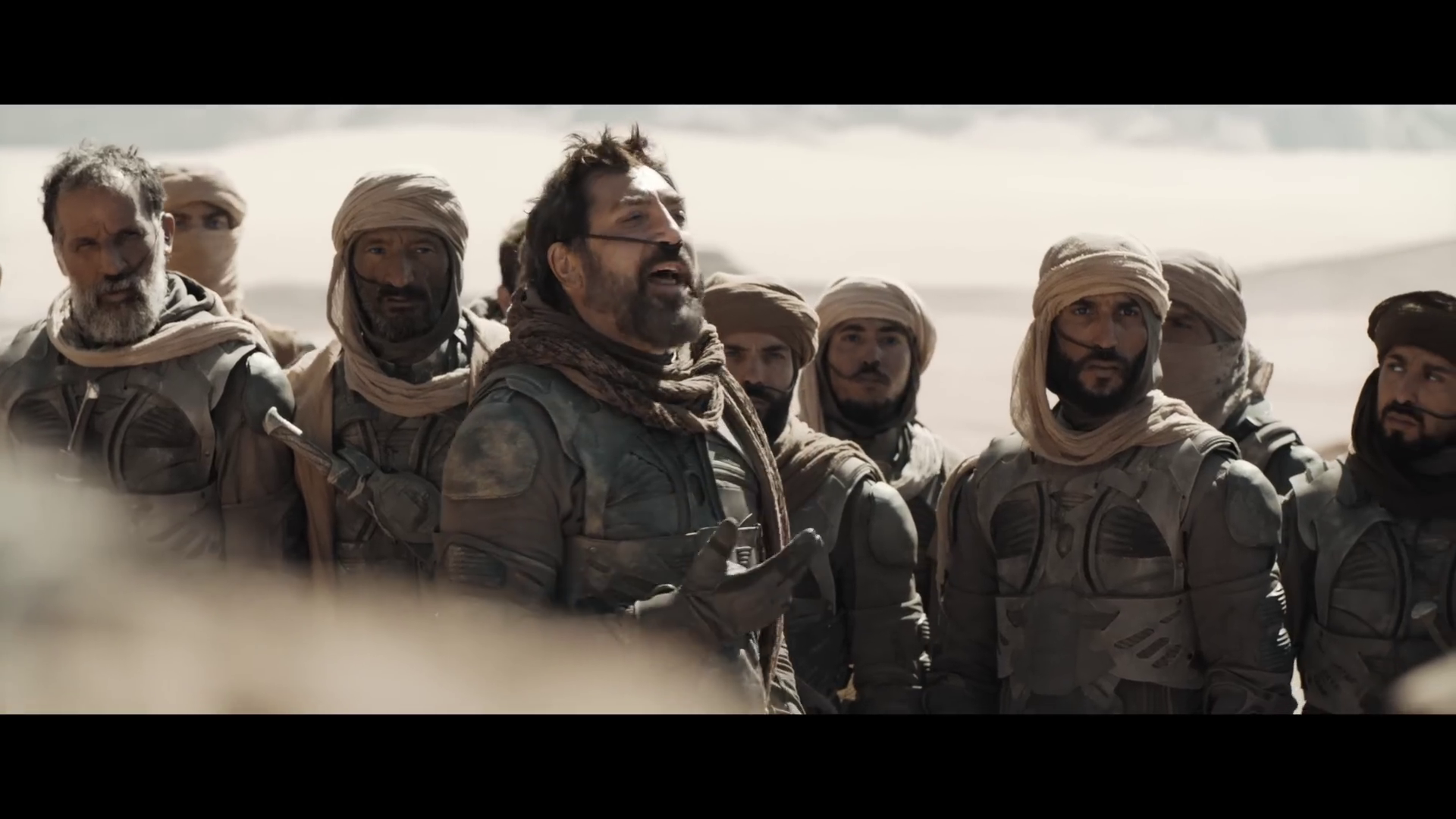
Only Zendaya’s Chani stays clear-eyed to the end, and her battlefield romance with Paul gives the movie the emotional hook the first film was missing – even though that love story is ultimately just a distraction from Paul’s larger mission. Everything that happens is in the service of Paul’s ascension. He just doesn’t want to believe it.
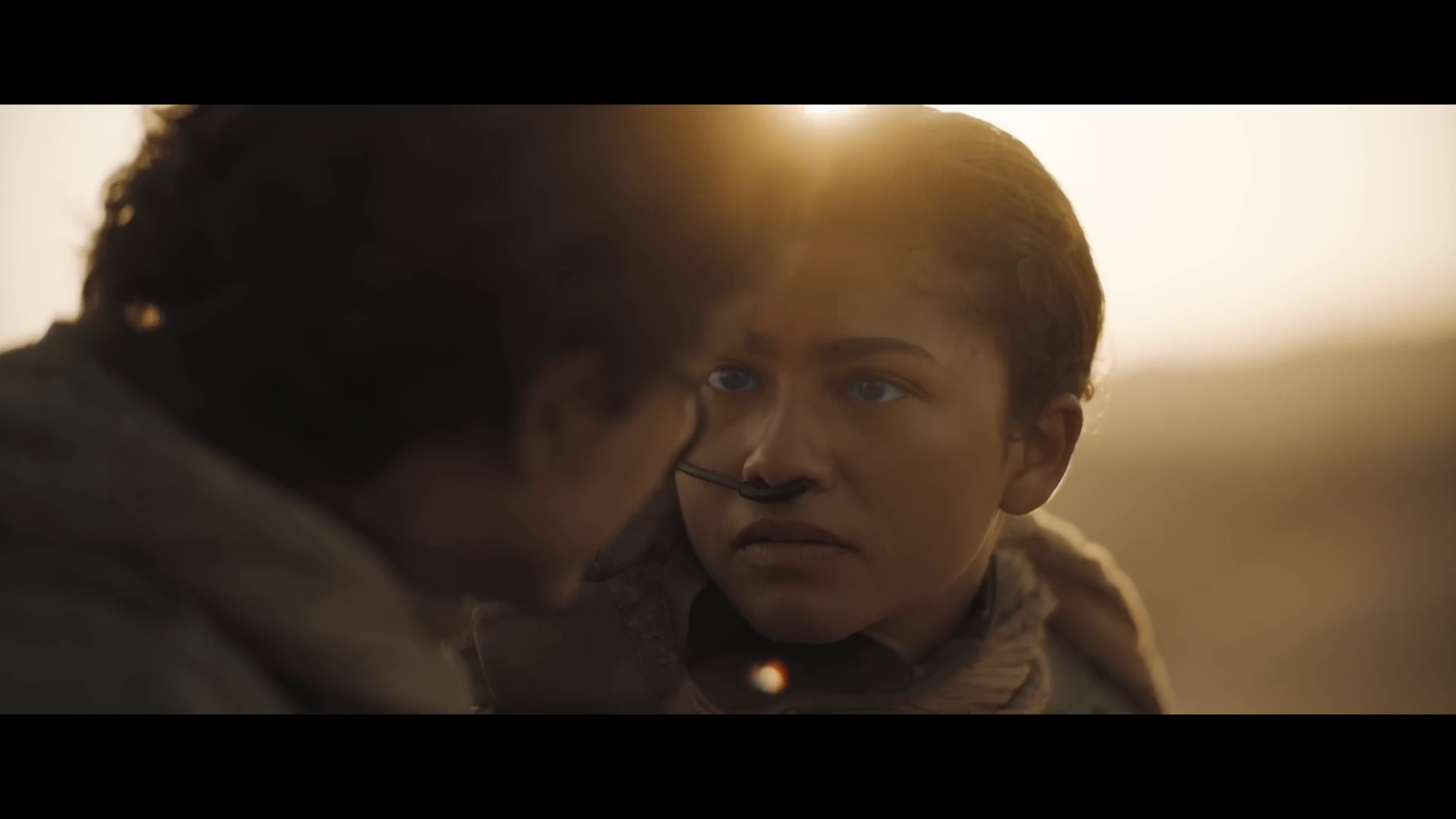
Hell, even when Part Two leaves Arrakis entirely to spend 40-odd minutes watching the machinations of those pasty Harkonnens, they’re all acting in response to his choices – though they think he’s some Fremen insurgent called Muad’dib. Which he is, since that’s the identity he’s assumed, it’s just that they think Paul Atreides was killed in the attack in the last movie. Villeneuve makes sure we know what’s going on, even as these debauched idiots are seething and arguing with each other about the best way to handle their space business.
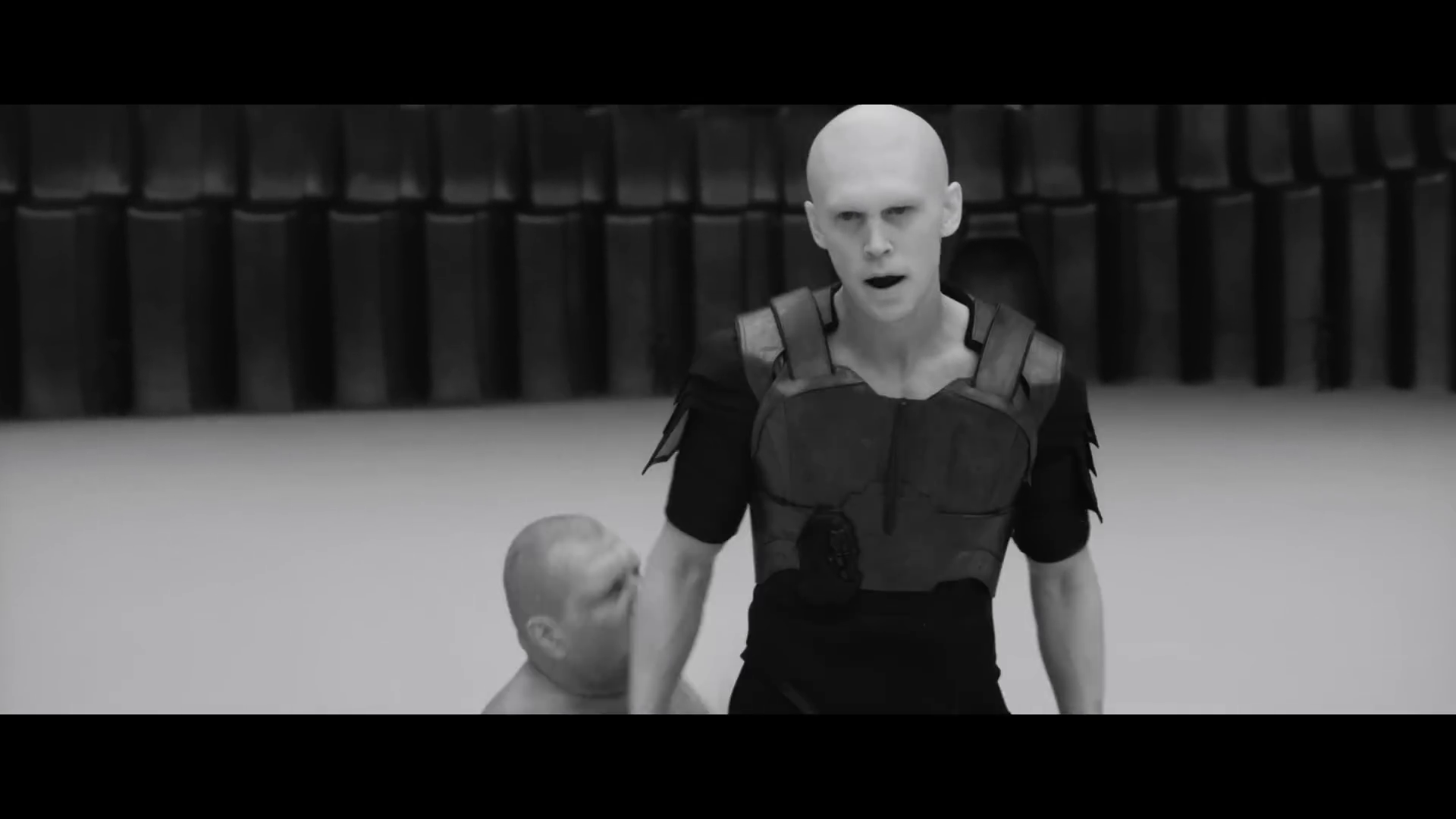
And it’s to his credit that he can make House Harkonnen – embodied by Stellan Skarsgård, Dave Bautista and now Austin Butler – seem both very silly and genuinely creepy, sometimes both at once. Letting Baustista go full Giant Murder Baby in this one is an absolute hoot, especially since Jason Momoa’s Duncan Idaho is no longer around to liven things up.
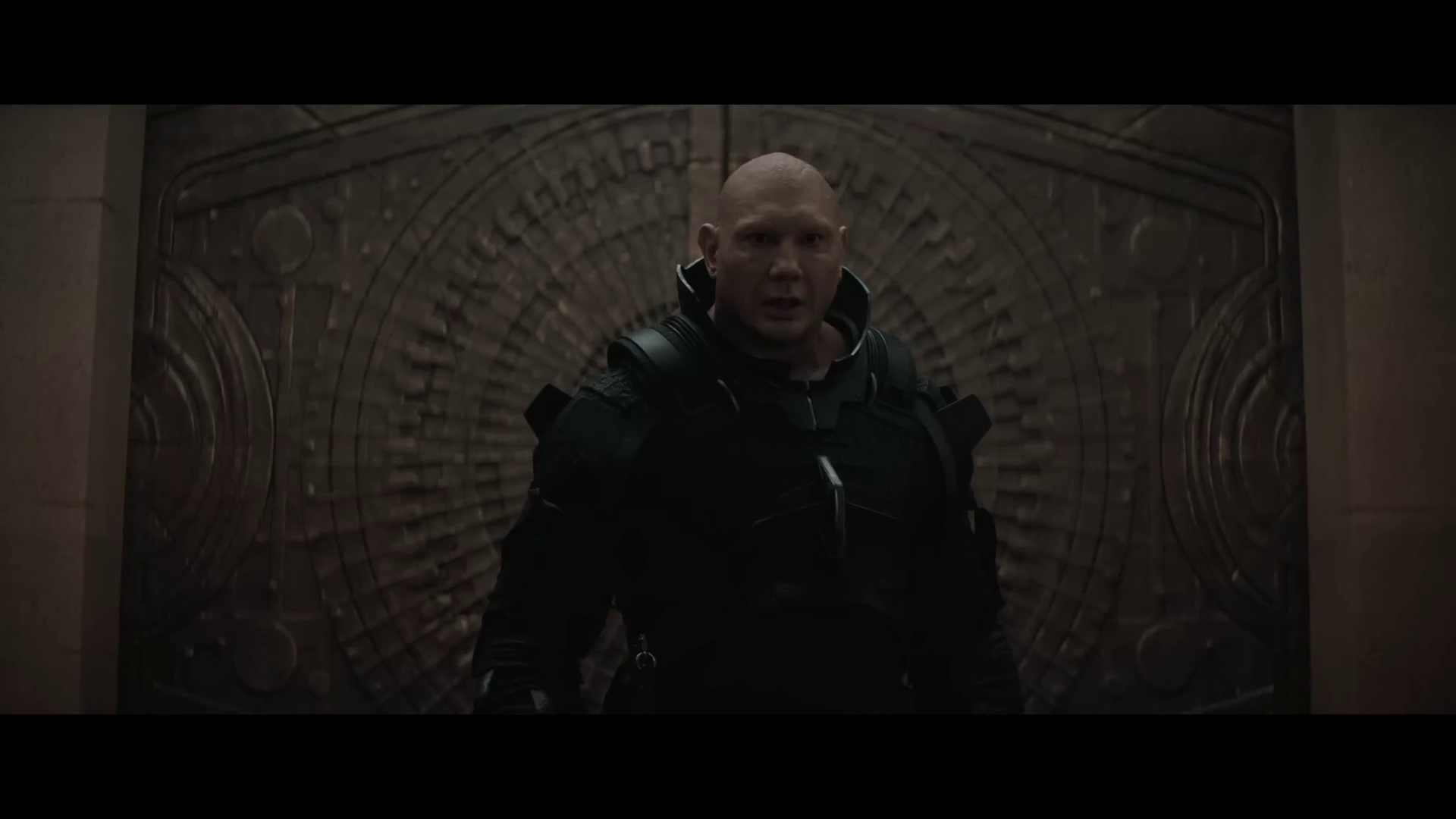
But back to Paul, as all things Dune must go. Part Two is all about his tragedy, the realization that not only was all the superstitious yammering absolutely real, but he’s trapped within it. His very existence was not just preordained but meticulously structured, and the only thing he can do is fulfill his destiny by starting a war that will bring further death and suffering to the people he’s trying to save, along with the entire galaxy. They’re shouting his name, but all he hears are their screams.
That’s not quite how Lawrence of Arabia played out, of course; the whole point of Lean’s film was that T.E. Lawrence is “humbled” by the realization that he’s not a messiah, just a man – but the results were more or less the same for the Arabs and the larger Middle East. Paul’s godhood is real, but it doesn’t actually help him to know it; if anything, it just makes things so much worse. Chalamet handles that arc expertly, his callow affect hardening into a sort of rueful conviction as Paul understands his place in the narrative. It’s a really interesting contrast with the stuff he did in Wonka, playing someone so cheerful that even indentured servitude can’t keep him down; here we watch a boy become a man, then something greater, and it only makes him smaller and more trapped.
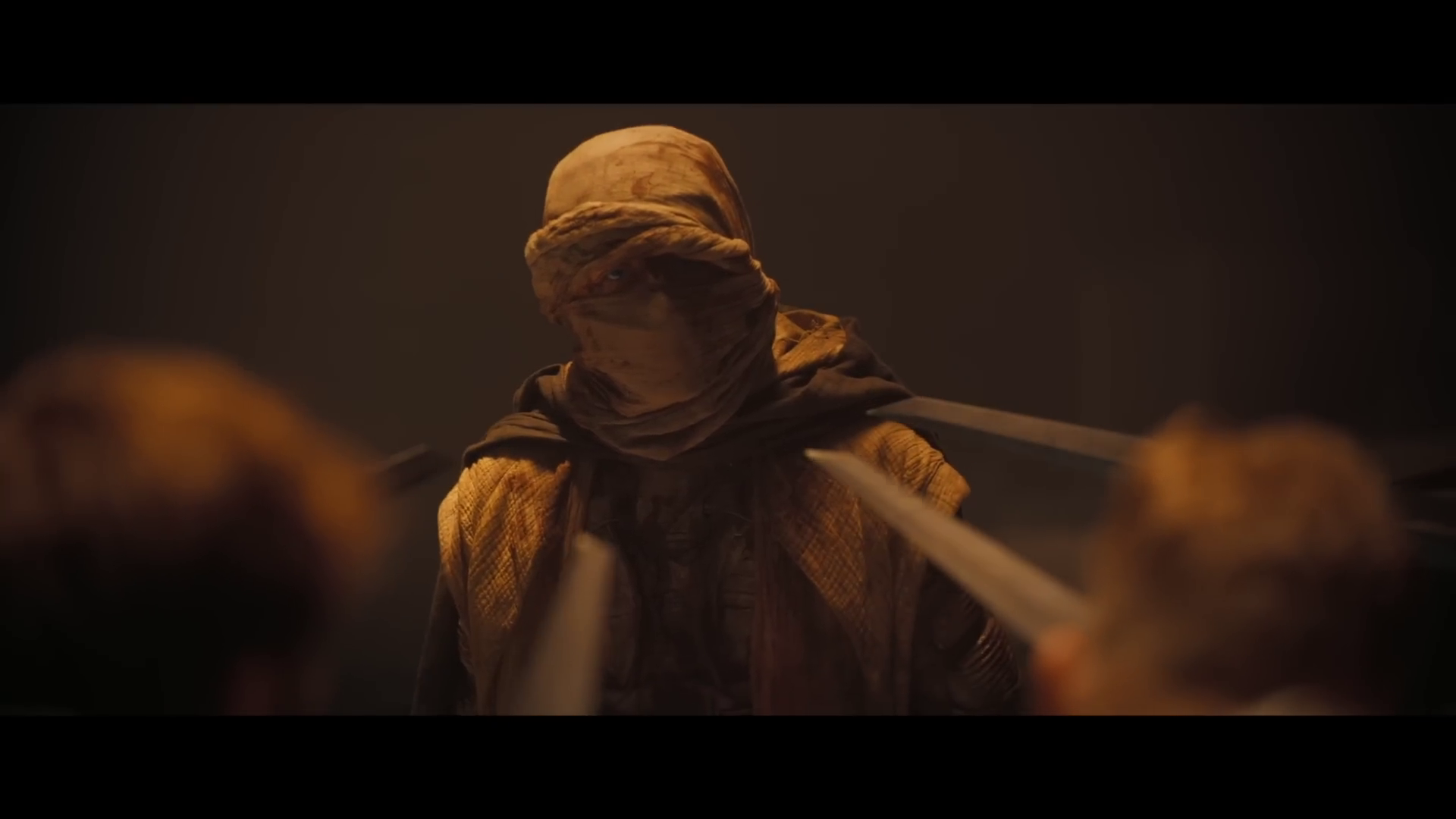
That’s something we haven’t seen in any previous version of Dune, and it’s Villeneuve’s triumph. David Lynch’s adaptation was so busy compressing the events of Herbert’s book into a single feature that it couldn’t find room for the personal amidst the political; the 2000 miniseries wasn’t even interested in it. Villeneuve could only see this story through Paul’s lens – to Part One’s detriment, even, since he insists on staying with Paul and Jessica during that long last movement – which is why Part Two pays off so well. And if it ends with the promise of yet another chapter to come, well, this time I’m confident Villeneuve can deliver on that promise.
Of course, there are those who still insist Lynch’s adaptation is the superior Dune – and after forty years, no one’s going to change their minds. That film undeniably has its fervent admirers, as demonstrated by the dozen or so special editions released on disc over the years, starting with the Universal double-DVD set that included the contentious extended version assembled for broadcast television – and credited to screenwriter “Judas Booth” and director “Allan Smithee” after Lynch refused to sanction it.
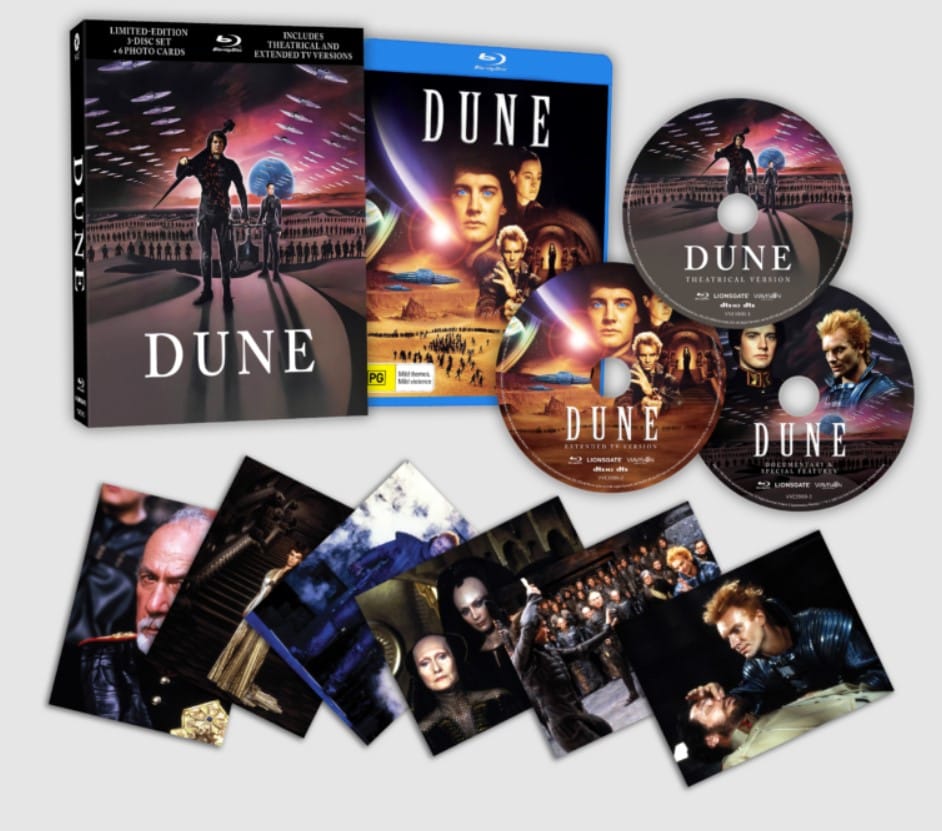
And if you’re among those superfans, you’ll want to know about Via Vision’s brand-new boxed set, a three-BD 40th anniversary affair that assembles most of the special features for those various special editions, including the hour of new featurettes and interviews produced for Arrow’s lovingly crafted 4K restoration way back in 2021 … and brings two key extras to a global audience for the first time.
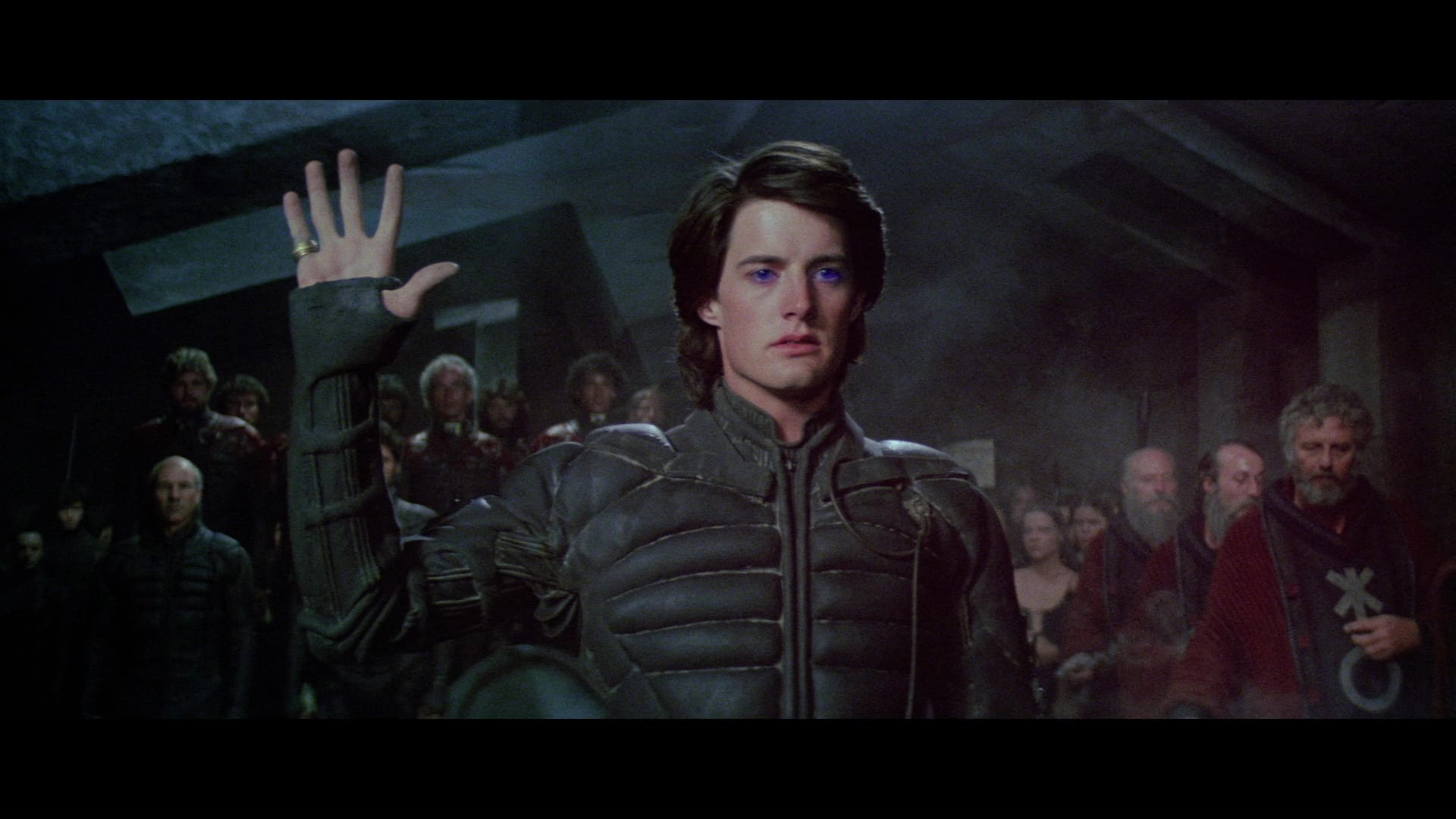
The first is a proper HD presentation of that three-hour television cut – about which more in a moment – and the second is “The Sleeper Must Awaken: Making Dune”, a feature-length retrospective documentary from Ballyhoo Motion Pictures that was announced for Arrow’s disc but didn’t make it to the final product, though it did turn up on the Region B German release from Koch Media, and on Arrow’s streaming service, a few months later. Now it’s finally available on an all-region disc, in an exclusive extended version, and it’s essential viewing for the Dune superfan.
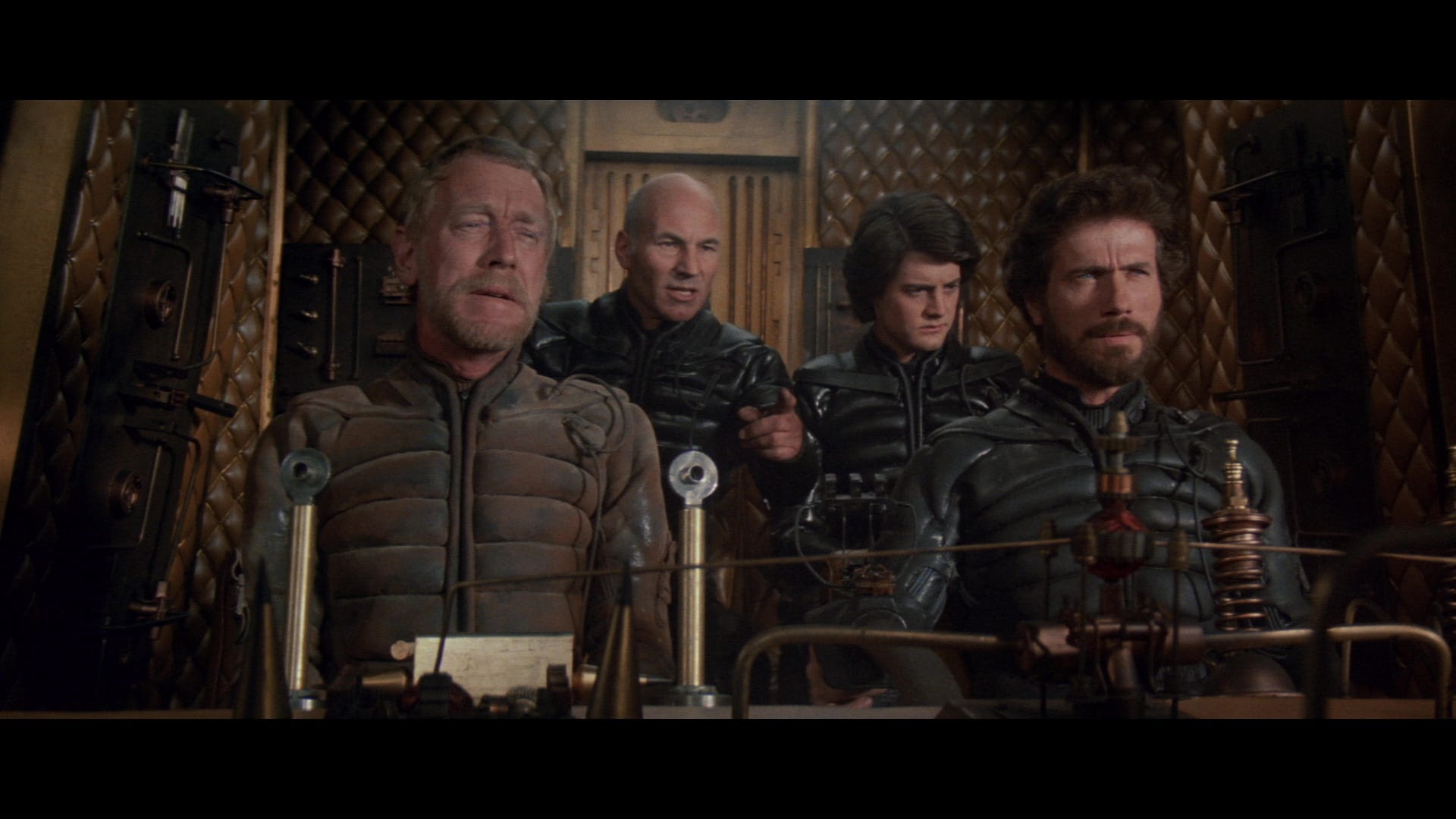
Director Daniel Griffith has constructed a nuts-and-bolts look at the 1984 production in the style of Asif Kapadia’s Senna and Amy, with film clips, archival footage and production materials given new context by a mix of new and existing audio interviews. (Lynch didn’t participate, of course, but he’s represented in clips from the press tour and other media appearances.)
Finding bits of insight into almost every aspect of the production, from the people who were physically present for it, this is the as close to a comprehensive record of Lynch’s Dune as we’re likely to get, unless Lynch decides to open up for the 50th anniversary. Basically, if you want to know everything that is knowable about the making of this version of Dune, you’ll need to see this. You should also watch Jodorowsky’s Dune, of course. That movie’s wild.
“The Sleeper Must Awaken” is the centerpiece of Disc Three in the Via Vision set, where it's accompanied by the bulk of the supplements. The other two discs are devoted to the theatrical and extended versions of the feature are presented on Discs One and Two, both in widescreen with audio options of 5.1 and 2.0 DTS-MA.
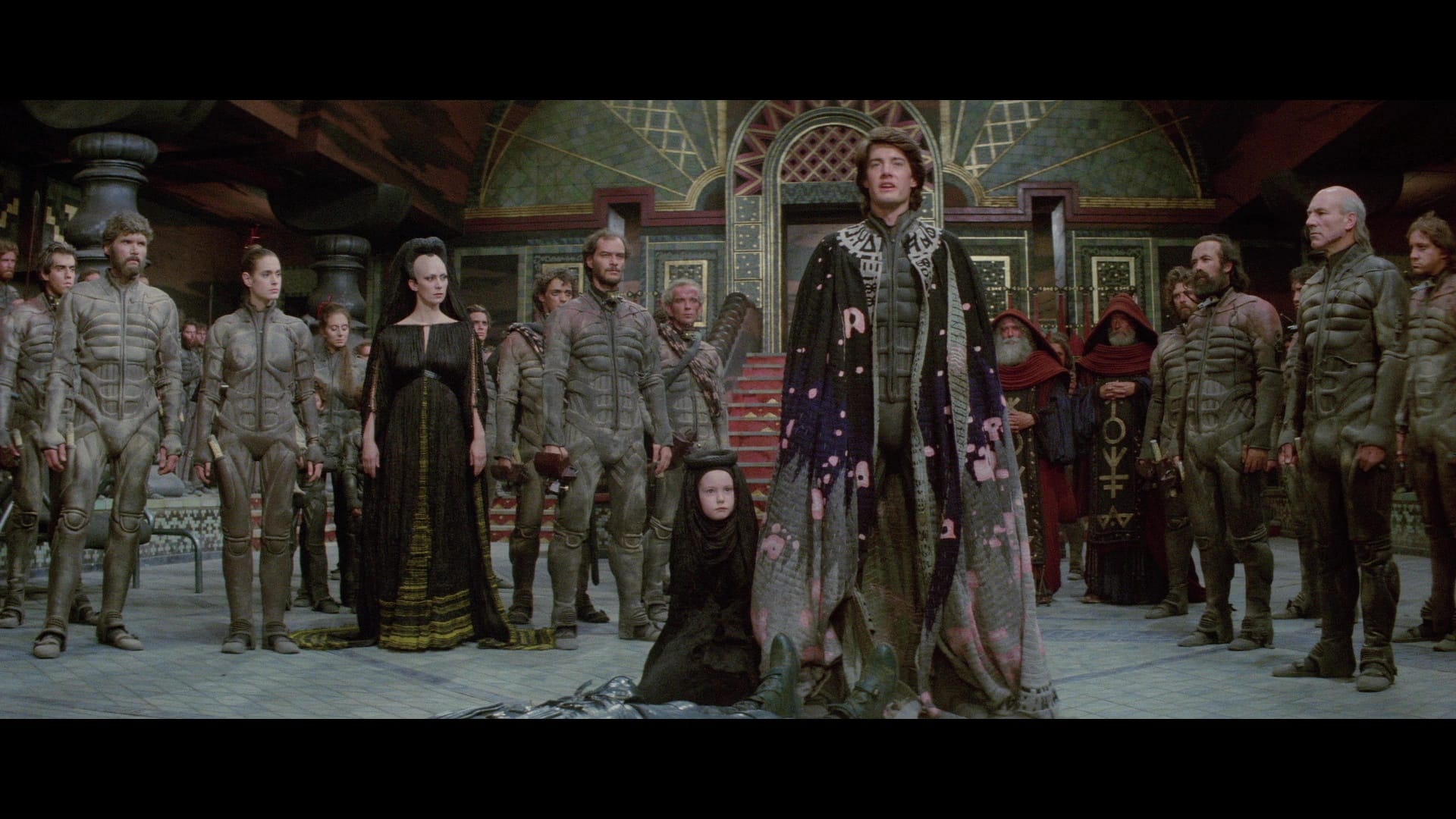
The theatrical version looks to be mastered from the same very good restoration that graced Arrow’s 2021 release, equally highlighting the details in the practical sets and costumes and the limitations of the period’s visual effects, while the extended cut appears to be stitched together from the restoration and some upscaled library sources, making for a slightly disorienting watch. But the extended cut was always disorienting.
This version of Dune may be even more fascinating than the Lynch cut. It’s a shining example, like the “Love Conquers All” recut of Terry Gilliam’s Brazil made around the same time, of how not to recut an artist’s vision. Of course, the TV edit of Brazil slashed almost an hour from Gilliam’s film and makes no fucking sense at all, while the expanded Dune still manages to give us a sense of the even more intricate and ambitious story Lynch set out to tell even as it butchers his intentions: Via Vision has commissioned a new audio commentary for the extended cut from Max Evry, author of the Dune oral history A Masterpiece in Disarray. He knows whereof he speaks.
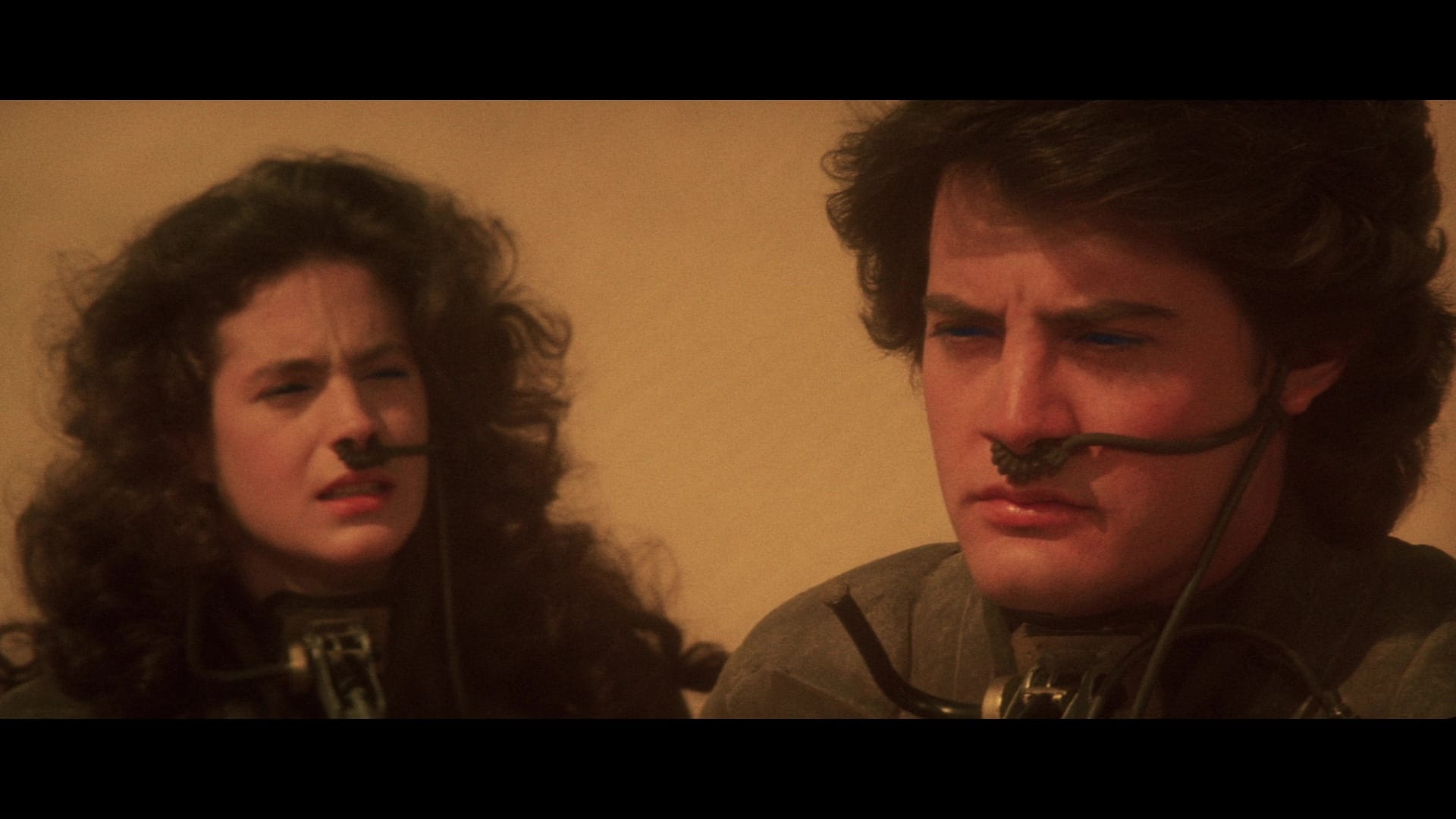
Lynch’s Dune was never going to work, exactly – it’s too self-serious and chaotic to cohere in the viewer’s mind – but it’s an incredible spectacle in its own right, with Anthony Masters’ Victorian production design now looking a lot like ground zero for the steampunk movement and a truly stellar cast in search of a tone that works for Herbert’s stentorian dialogue. (One thing Villeneuve and company got very right was the understanding that even in a gargantuan space epic, actors can deliver dialogue of grand galactic significance in a naturalistic manner.) If the theatrical cut is a mess, the extended version is even more so.
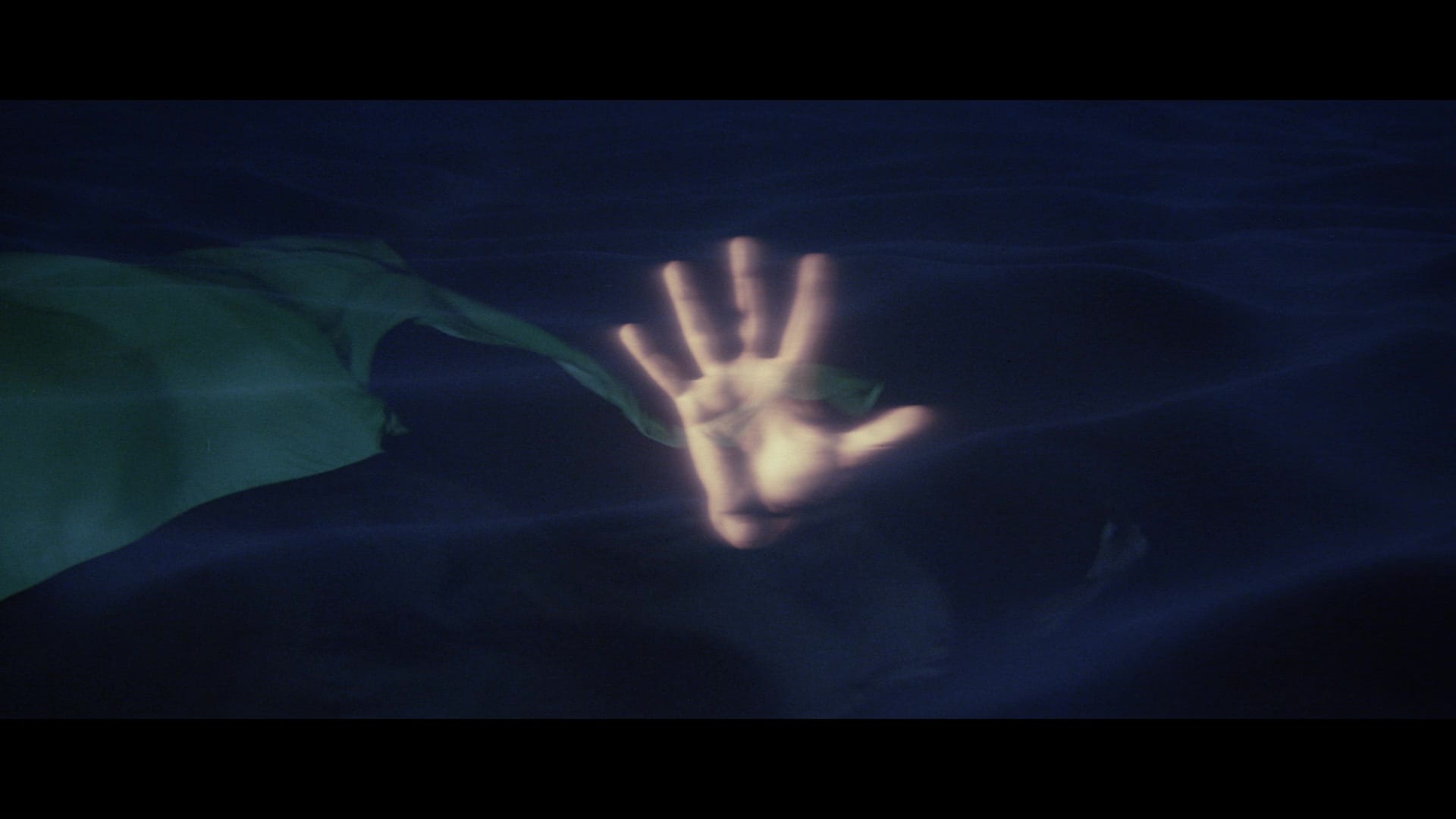
The Smithee cut just gives you more bloat, more pronouncements, more everything, with the Virginia Madsen prologue swapped out for a long, storyboardy history of the universe that front-loads so much useless information it’s a wonder anyone stayed tuned back in the day. Say what you will about the theatrical cut, at least Lynch and Antony Gibbs understood what to keep and what to discard.
Extras on Warner’s 4K disc of Dune: Part Two are a little more corporate: We get about an hour of production featurettes covering all the new stuff: The expanded cast (I didn’t even mention Christopher Walken and Florence Pugh, did I?), costumes and locations, props, effects, all of it. The longest segment, at nearly 12 minutes, focuses on the sound design, and I am always down to learn more about how people construct a soundscape that can’t exist in the real world and make me believe I’m sitting in it.
The Atmos track on this thing is glorious, by the way; Villeneuve really understands how to cut from activity to silence to instill a sense of awe in the audience. And that’s another way he tries to make his Dune very different from David Lynch’s; Lynch was all about grandeur and bombast, while Villeneuve’s movie is messier and more granular, even as it covers the same massive story.
But it’s a big desert. Love the Dune you love. Just, you know, watch out for this guy.
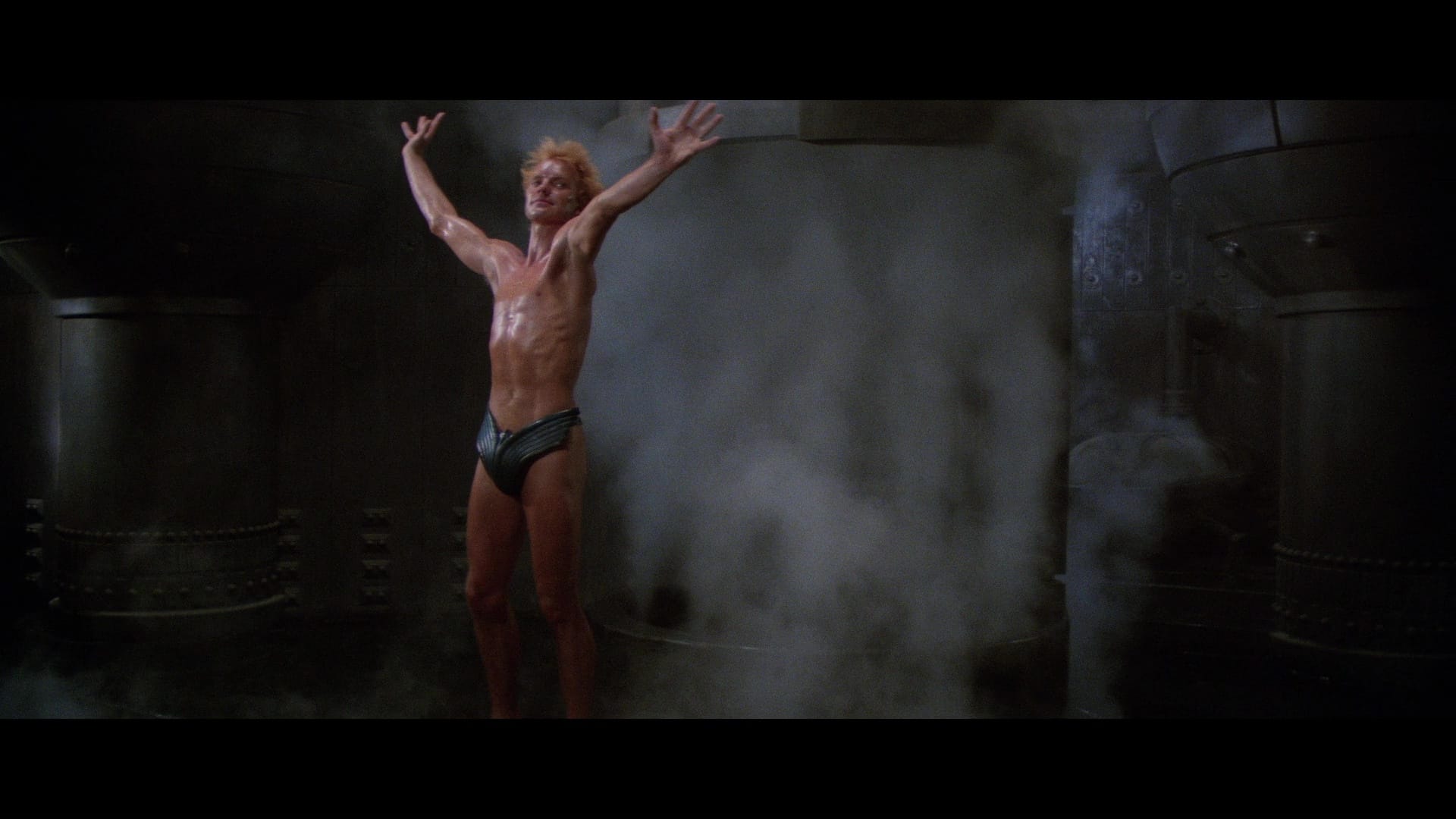
Dune: Part Two is available in individual 4K and Blu-ray editions from Warner Home Entertainment; a combo steelbook is also available. Via Vision’s Dune ’84 box set is available directly from Via Vision, and at your more discerning brick-and-mortar shops including Toronto’s own Bay Street Video.
